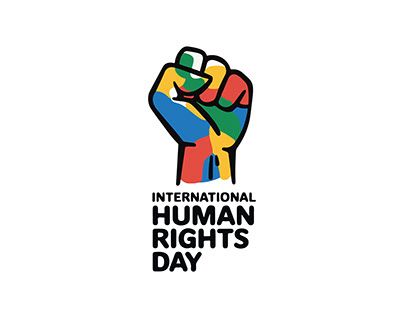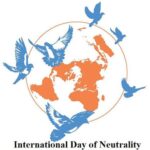“7 Powerful Reasons Why Human Rights Day Is Vital for Global Justice”
What is Human Rights Day?
Human Rights Day is observed annually on December 10 to commemorate the adoption of the Universal Declaration of Human Rights (UDHR) by the United Nations General Assembly in 1948. This day celebrates the recognition and protection of the fundamental human rights of all people, regardless of their nationality, ethnicity, or background. Human Rights Day reminds the world of the need to continue the global fight against injustice, inequality, and human rights violations, and to ensure that every individual is treated with dignity and respect.
History of Human Rights Day
The Universal Declaration of Human Rights (UDHR) was a milestone document in the history of human rights. After the horrors of World War II, the international community sought to create a common standard for human rights that would protect individuals from abuses and ensure their dignity. The UDHR was adopted on December 10, 1948, by the United Nations General Assembly in Paris, France. It consists of 30 articles that outline the basic human rights and freedoms to which all people are entitled, such as the right to life, liberty, and security, freedom of speech, and the right to work and education.
The declaration marked a shift in international law, establishing human rights as a core principle of the global community. Human Rights Day was established to celebrate this achievement and raise awareness about the ongoing challenges to human rights around the world.
Daily Life Impacts of Human Rights Day
While Human Rights Day is a global observance, its impacts can be seen in daily life, influencing how individuals interact with one another and how governments uphold justice:
- Awareness of Rights: This day reminds individuals of their rights and freedoms, empowering them to stand up against violations they may face, such as discrimination, exploitation, or repression.
- Promoting Equality: Human Rights Day encourages societies to work toward creating inclusive environments, where every individual, regardless of gender, race, religion, or background, is treated equally.
- Fostering Peace: By recognizing human rights, we promote peace, as the denial of human rights often leads to conflict. Human Rights Day highlights the connection between justice and peace in global societies.
- Support for Marginalized Communities: The observance serves as an opportunity to draw attention to marginalized communities who suffer from systemic discrimination, such as refugees, minorities, and people with disabilities.
Key Facts About Human Rights Day
Here are a few key facts about Human Rights Day:
- The UDHR is Non-binding: Although the Universal Declaration of Human Rights is a foundational document in international law, it is not legally binding. However, many of its principles have been incorporated into binding treaties such as the International Covenant on Civil and Political Rights and the International Covenant on Economic, Social and Cultural Rights.
- The Theme Changes Annually: Each year, the United Nations selects a theme for Human Rights Day to highlight a particular aspect of human rights that needs attention. For example, themes have included “Youth Standing Up for Human Rights” and “Human Rights and the 2030 Agenda for Sustainable Development.”
- Global Participation: Human Rights Day is celebrated globally by governments, human rights organizations, educational institutions, and activists. It is a day for reflection, advocacy, and action toward a more just and equal world.
- The UDHR Was Drafted by Experts: The Universal Declaration of Human Rights was drafted by a committee of experts from diverse cultural backgrounds and legal traditions, ensuring that the rights outlined in the document are universal and not confined to any one culture or region.
Significance of Human Rights Day
Human Rights Day is one of the most important observances in the international calendar for several reasons:
- Reminder of Universal Rights: The day serves as a reminder that every human being, regardless of their origin or status, deserves the same rights and freedoms. It emphasizes the importance of these rights being upheld by governments, institutions, and individuals.
- Reflection on Progress: Human Rights Day allows the global community to reflect on the progress made in human rights protections, such as the abolition of apartheid, the advancement of women’s rights, and the rights of children and refugees.
- Advocacy for Change: The day provides an opportunity for people to advocate for the human rights of those who are oppressed or marginalized. It inspires individuals and organizations to take action, whether through peaceful protests, campaigns, or support for policy change.
- Highlighting Human Rights Violations: Human Rights Day helps raise awareness of ongoing human rights violations, such as violence against women, forced labor, and political repression. By drawing attention to these issues, the world is urged to take action to stop them.
- Strengthening International Cooperation: Human Rights Day fosters cooperation between countries and civil society in promoting and protecting human rights. It encourages states to work together to address violations and ensure justice for all.
How is Human Rights Day Observed?
Human Rights Day is observed through a variety of activities and events that aim to raise awareness and inspire action:
- Educational Events: Schools, universities, and human rights organizations often hold seminars, lectures, and panel discussions on human rights topics, helping to educate the next generation about their rights and the importance of defending them.
- Public Demonstrations: Many people participate in public demonstrations, marches, and protests on Human Rights Day to show solidarity with those whose rights are under threat. These events can be powerful tools for raising awareness about injustices and calling for change.
- Social Media Campaigns: Activists and organizations use social media platforms to share stories, videos, and messages about human rights. These campaigns often go viral, spreading information globally and mobilizing people to take action.
- Human Rights Awards and Recognition: On Human Rights Day, awards are often given to individuals and organizations that have made significant contributions to promoting and protecting human rights. These awards highlight the importance of dedication to justice and equality.
Frequently Asked Questions (FAQs)
1. What is the theme for Human Rights Day 2023?
The theme for Human Rights Day changes every year. You can check the official UN website for updates on the current theme and how it aligns with global human rights issues.
2. How can I celebrate Human Rights Day?
You can celebrate by educating yourself and others about human rights, attending local events or rallies, supporting human rights organizations, or advocating for policy changes that protect human rights.
3. What are the key rights listed in the UDHR?
The UDHR includes fundamental rights such as the right to life, liberty, and security; freedom of thought, conscience, and religion; the right to work and receive an education; and the right to participate in government.
Significance of Human Rights Day for Society
Human Rights Day is essential for society because it promotes the values of justice, equality, and dignity for all. By upholding human rights, societies create environments where individuals are treated with respect and have opportunities to thrive. It encourages people to stand up against oppression, discrimination, and abuse, fostering a culture of inclusivity and mutual respect.
As a reminder of the progress made and the work that still needs to be done, Human Rights Day is a day for everyone—governments, civil society, and individuals—to renew their commitment to creating a world where human rights are universally respected and upheld.
Wishing
Here are a few messages to share on Human Rights Day:
- “Let’s stand together for justice, equality, and freedom. Happy Human Rights Day!”
- “On this Human Rights Day, let’s pledge to defend the rights of all people, everywhere.”
- “Happy Human Rights Day! Today, we celebrate the dignity of every human being and work toward a future of equality.”
Conclusion
It serves as a powerful reminder of the fundamental rights and freedoms that every individual should enjoy. It calls on governments, organizations, and individuals to work toward a world where human rights are universally respected, where injustices are challenged, and where every person has the opportunity to live a life of dignity and freedom. Whether through advocacy, education, or simple acts of kindness, we all have a role to play in building a more just and equal world.










